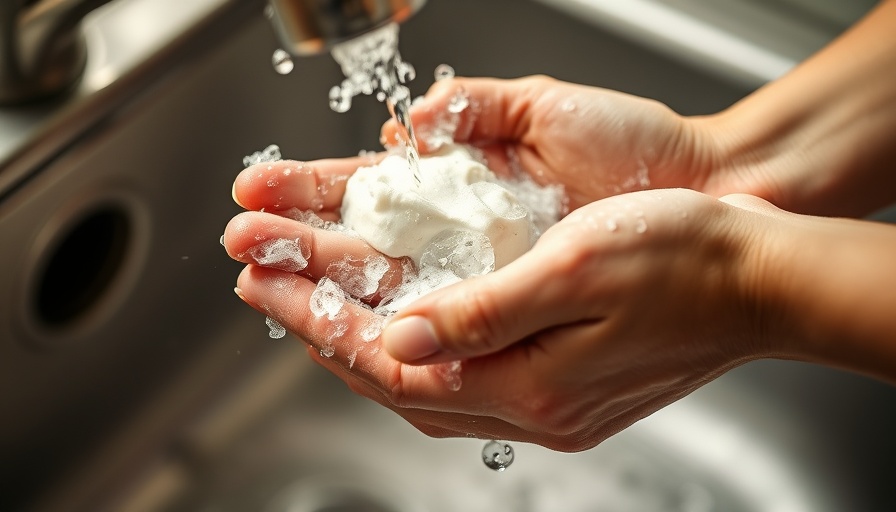
Understanding the Hygiene Hypothesis: Are We Making Ourselves Sicker?
The Hygiene Hypothesis suggests that our obsession with cleanliness and germ elimination may actually weaken our immune systems. Over the past few years, antibiotic usage has increased by an alarming 16%, raising concerns among public health experts who warn that excessive sanitization could lead to detrimental health consequences. Many of us embraced this sanitization culture during the COVID-19 pandemic, stocking up on disinfectants and hand sanitizers in a bid to protect ourselves from illness. However, this 'too clean' environment may actually hinder our immunity development.
Why Is Germ Exposure Important?
As counterintuitive as it may sound, exposure to everyday germs can help our immune systems mature and adapt. Our bodies are designed to come into contact with various pathogens, which actually trains the immune system to recognize and effectively respond to illnesses. According to Kiara DeWitt, a registered nurse, “Look, dirt is not the enemy.” Diminished exposure to the myriad of microorganisms found in our environment can lead to an immune system that isn’t equipped to handle real threats.
The Science Behind the Hygiene Hypothesis
Research has indicated that children who grow up in farm environments—with regular exposure to dirt and animals—tend to have lower rates of allergies and asthma than those raised in overly sanitized homes. This correlation emphasizes how essential it is for our immune systems to engage with the bacteria around us to develop robust defenses.
Revisiting Cold Weather Myths
Another common misconception is the belief that cold weather directly causes illness. Instead, the truth reveals that while cold temperatures do not make us sick, they can suppress our immune functions. With winter months driving us indoors, viral infections can proliferate more rapidly due to close contact with others, thereby increasing our chances of getting sick.
Balancing Hygiene and Health
Creating a balance between necessary hygiene practices and beneficial germ exposure is crucial. Avoiding antibiotics when not absolutely required, and reducing reliance on harsh cleaning products, can help maintain a healthy immune response. Instead of constant sanitization, consider focusing on simple hygiene practices like regular hand washing and cleaning surfaces that food touches, while allowing for the presence of normal, everyday germs.
Future Predictions: What Lies Ahead for Public Health?
As our understanding of the Hygiene Hypothesis deepens, we may see a shift in public health guidelines towards more balanced hygiene practices. This could lead to educational programs that emphasize the importance of immunity-building practices alongside necessary hygiene habits. With a growing awareness of holistic health approaches, it’s feasible that society will gradually return to a more sensible approach that respects both cleanliness and immune system development.
Empowering Wellness: Practical Steps Towards a Healthier Life
Embracing a healthy lifestyle involves recognizing the significance of balanced hygiene and immune exposure. Here are a few actionable tips to integrate into your routine:
- Get Outside: Encourage regular outdoor activities, allowing for contact with nature and its myriad of microorganisms.
- Focus on Nutrition: Incorporate a diet rich in superfoods and nutrients that bolster your immune system. Think colorful fruits and veggies, whole grains, and lean proteins.
- Practice Mindfulness: Invest in mental and emotional wellness through practices like meditation and stress management techniques to support overall health.
Final Thoughts: Embracing a Balanced Approach
While cleanliness has its place, it’s vital to recognize the potential risks associated with an overzealous approach to sanitization. By fostering a healthier balance between hygiene practices and allowing for everyday germ exposure, we can cultivate stronger immunity and promote a more balanced lifestyle.
By considering these insights, take action towards enhancing your health and wellness. Start today by assessing your hygiene practices and embracing beneficial germ exposure for a more resilient immune system.
 Add Element
Add Element  Add Row
Add Row 



Write A Comment